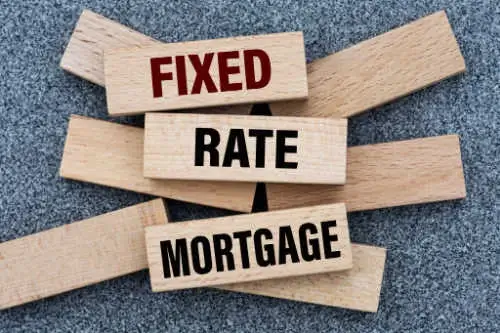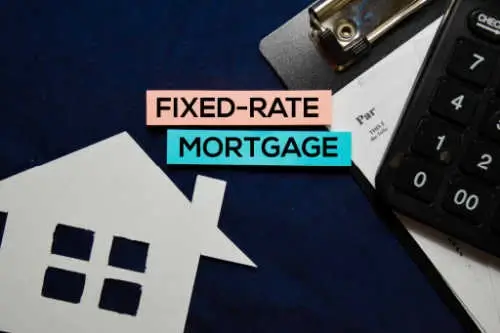
Thanksgiving is a wonderful holiday that gives us the opportunity to express our gratitude to all of our family, friends and clients. All of us at Texas Mortgage Finance would like to wish you a Happy Thanksgiving and to let you know how much you mean to
Nov 24, 2022 |

When you are applying for a home loan, you are generally concentrating on the principal and interest charges that will make up your future mortgage payment. However, there is another cost that may be harder to determine at the outset of your loan: your pr
Nov 22, 2022 |

Not all homeownership looks like a single-family home with a white picket fence. There are all sorts of property types to help Americans realize the dream of becoming a homeowner. Condominiums, also known as condos, can be the perfect option for those who
Nov 15, 2022 | Purchasing a Home

Buying a vacation home can be an excellent investment, whether you are planning to use it exclusively as your own private escape or if you plan to rent it out for some extra income, or some combination of the two. However, purchasing a second home is a we
Nov 08, 2022 | Purchasing a Home

The most common home loan, by far, is the 30-year fixed-rate mortgage. It spreads out the principal and interest in an amortized pattern over three decades, allowing for manageable payments. It’s a good solid loan structure beloved by lenders and borrower
Nov 01, 2022 | Purchasing a Home

Long-term mortgage interest rates have more than doubled in the past year and hit 14-year highs as of September 2022. If you bought a home in recent years with an adjustable-rate mortgage (ARM), it probably made a lot of sense at the time and helped you s
Oct 25, 2022 | Interest Rates
Don’t Get a Mortgage from a Company that has “Bank” in its name
When buying or refinancing a home, most people don’t even know the first place to start the process. While some may know someone that knows someone, the majority turn to a bank that they have dealt with in the past or an advertisement they see on television for their first call. Others will turn to the internet and take a shot in the dark to see if they hit the target. Unfortunately for these people, after everything is said and “closed”, they realistically didn’t ever have a chance to really see the target. With all of the marketing gimmicks that you see (No closing costs, no money down, $5000 incentive if you pick this lender….. Blah, Blah, Blah!!!!!!), it is very difficult to understand what is the best path and the most sound financial decision when buying a home.
Before the crash in 2009, everybody played the rate game with lenders, and whoever gave the borrower the best rate won. What most people didn’t realize was that the higher the rate, the more money the bank would make. This was called a yield spread premium. The higher the rate, the higher the yield in the bank’s pocket. Well, that is not the case anymore. The best rate is not always the best decision. Since the controversial “Dodd Frank Act”, the rules have changed drastically, and what most do not realize, this is what changed the game for consumers in a very positive way. Instead of the bank getting paid more when they charge a higher rate, now the homebuyer gets the paycheck the bank used to get to put towards their own closing costs. Yield Spread premium is now called a “Lender Credit”. This means that you can now decide on the rate that best fits your financial situation. For example, at 4% interest on a 30 year conventional mortgage the lender will pay 1% of the loan amount towards your closing costs. If the rate is moved to 4.25%, then the lender will pay back 1.25% of the loan amount. At 4.5% they may credit you 1.5% and so on. Based on a $100,000 loan the credits to you would be $1000, $1250 and $1500 respectively.
How does this help you?
For someone that may have little money to put down at closing, taking a higher rate would enable them now to have the lender pay for some of the closing costs. On higher loan amounts, all of the closing costs can be paid by the lender. This enables many people that couldn’t buy a home before the crash to have many more options to be able to buy now because they do not have to bring as much money to the table.
NOW HERE IS THE KICKER!!!!!
All of the gimmicks that I mentioned above (No closing costs, no money down, $5000 incentive if you pick this lender….. Blah, Blah, Blah!!!!!!), well those are all based on the Lender Credit. As a broker, I am required by law to disclose the amount of lender credit for each rate, but the banks are not.
What does this mean?
This means that the bank can hide the money from you and put it in their pocket. This is how they advertise no closing costs or special incentives to use them. They are just raising your rate to cover everything without you having a say in what you want to do. If they are not offering incentives or showing a lender credit on your loan estimate, then, well they are just raking you over the coals. If you use a broker, that money is always yours, end of story.
The law has again allowed banks to be dishonest with your money. By using a broker, you will always know where every penny of your money is used.
Daniel Cason Lonestar Mortgage Solutions Texasmortgagedc.com